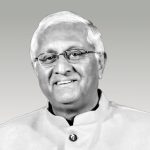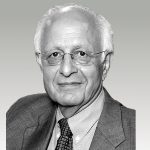Podcast Themes
Multiple perspectives on a topic that you are curious about!

Alan speaks about Bill’s role during some of his key transitions in his stellar career at Google. He speaks about the fact that despite his clarity of thought on the business front, when it came to making decisions for himself, there was an element of irrationality. Alan goes on to speak about Bill’s role in ensuring that Eric made sound choices at those crucial moments.

Alisa speaks about the phenomenon where the Founder, as the company scales up, has to give away some part of the job that he or she really really enjoyed. As the company scales up the Founder often needs to get involved with the building of the company and not really the specific activity or function that really brought him or her energy. And that can be a non-trivial transition.

Sukhinder speaks how one could possibly discern some of the elements around values fit while considering an opportunity at the very top. She speaks about how some of these could be unearthed in a conversation and how we could reference some of these from the ecosystem the leader operates in.

Ramesh speaks about how he has stayed relevant over the 26 years in the Firm and how he has taken on different responsibilities to align his professional pursuits with his personal passion.

RG speaks about how leaders coming in from one context can effectively adapt to a completely new context especially when they do not have a working knowledge of the new space. He underscores the importance of humility, openness to learning to build trust and come up the learning curve in the new environment.

Andrew speaks about how he came up with a framework to measure judgment. He also speaks about the nature of research he did to get to what was judgment and the variables that go in there. He also speaks about how the framework has evolved over time as he did his research and particularly speaks about the role of values in judgment.

Michael speaks about the specific challenge when start up entrepreneurs bring in seasoned leaders as they transition from a start-up context to a scale up context. He talks about some of the elements that the entrepreneur and the incoming leader need to bear in mind.

Matt speaks about how athletes come to him with excellence in one or two domains (cycling, running, swimming) but have to quickly come up to speed in a totally different area to be competitive in a multi-sport context. We discuss the parallels between this and how Functional leaders need to transition to General Managers.

Michael lays out the key challenges involved when a leader gets promoted and transitions to a context where he/she has to lead a team with several individuals who used to be his/her peers earlier. He gives some useful insights on how leaders could think about re-engineering the relationships while walking the tightrope between being a “Napoleon” and a “Super-peer”.

Michael speaks about the key shift when a leader transitions from functional leadership to General Management. He speaks about the default anchoring that people often come with when they move from a function to a General Management role. He specifically speaks about adjusting the unit of analysis and the notion of managing in the white spaces which becomes critical as a General Manager.

Michael speaks about the criticality of leaders transitioning from a competitive mindset to a collaborative mindset where they focus on building alliances and identify opportunities for cross-company collaboration, often even reaching out to rivals to co-create opportunities for the organization.

Arun talks about how he was a cross-roads when he had to move from a successful stint as an executive in Tata Motors to a role as a consultant with Arthur D Little in the United States. He talks about the circumstances in which he took the decision (including a nudge from JRD Tata) and how he had to adjust his style to be effective in a new professional and cultural context. It is not very often that you see a leader transition from being a Business Leader to a Business Consultant.